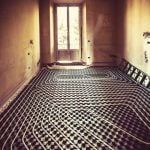How do home improvements affect capital gains? Homeowners often wonder how renovating or upgrading their property can impact their potential capital gains when it comes time to sell. Understanding the relationship between home improvements and capital gains is essential for homeowners looking to maximize their investments. By delving into the concept of capital gains and the importance of enhancing a property’s value through renovations, individuals can make informed decisions that could potentially increase their profits.
Capital gains refer to the profit made from selling an asset such as real estate, stocks, or bonds. When it comes to real estate, the value of a property can be significantly influenced by various factors, including market conditions and improvements made to the home.
Homeowners who invest in upgrades like kitchen remodels, bathroom renovations, or adding a deck can potentially see an increase in their property’s overall value. This heightened value can directly impact the amount of capital gains realized when selling the property.
Understanding how different home improvements affect capital gains involves considering factors such as the type of upgrade, its quality, and market demand for similar features. Additionally, homeowners need to be aware of the tax implications that come with making these improvements. By strategizing and focusing on renovations that not only enhance living spaces but also add financial value to the property, homeowners can work towards maximizing their capital gains when selling their homes.
What Are Capital Gains
Capital gains are a crucial aspect of homeownership that can be significantly impacted by home improvements. To fully understand how these improvements affect capital gains, it is essential to grasp the concept of capital gains itself. Capital gains refer to the profit made from the sale of an asset such as real estate, stocks, or bonds. In the context of homeownership, capital gains are the difference between the purchase price of a property and its selling price.
To delve deeper into this concept, let’s explore some key points regarding capital gains:
- Capital gains are considered taxable income by the Internal Revenue Service (IRS), although certain exemptions and deductions may apply.
- The length of time you own a property can also impact your capital gains tax rate. Properties held for more than one year are typically subject to lower long-term capital gains tax rates.
- Home improvements made to enhance the value of a property can directly influence the amount of capital gains realized upon its sale. It is crucial for homeowners to carefully consider their renovation projects in light of their potential impact on future capital gains.
Understanding the concept of capital gains lays the foundation for comprehending how home improvements play a significant role in this financial aspect of homeownership. By strategically planning renovation projects and considering their implications on capital gains, homeowners can maximize their profits when selling their properties.
Moreover, taking advantage of tax benefits associated with home improvements can further enhance potential capital gains. By staying informed about relevant tax laws and regulations, homeowners can make informed decisions about which improvements to prioritize in order to optimize their financial outcomes when selling their homes. Ultimately, being mindful of how home improvements affect capital gains is essential for maximizing returns on your investment in real estate.
Importance of Home Improvements
Investing in home improvements is not only about enhancing the aesthetic appeal and functionality of your property but also about increasing its overall value. When considering how do home improvements affect capital gains, it’s crucial to understand the direct correlation between the two. By making strategic upgrades and renovations to your home, you can potentially boost its market value, consequently impacting your capital gains when it comes time to sell.
There are several key ways in which home improvements can enhance the value of your property, such as:
- Upgrading kitchen and bathrooms: These are often considered the most important rooms in a home, and modernizing them can significantly increase your property’s appeal.
- Enhancing curb appeal: First impressions matter, so investing in landscaping, exterior painting, or a new front door can instantly add value to your home.
- Adding square footage: Increasing the livable space in your home through additions or finishing a basement can have a substantial impact on its market value.
By focusing on these aspects of home improvements, you can potentially see a higher return on investment when it comes time to sell your property. However, it’s important to consider factors such as location, market conditions, and the overall real estate landscape in order to make informed decisions about which upgrades will yield the best results in terms of capital gains.
Ultimately, by understanding how specific improvements can enhance your property’s value, you can strategically increase your potential for higher capital gains in the future.
Impact of Home Improvements on Capital Gains
When it comes to understanding how home improvements can affect capital gains, there are several factors that homeowners need to consider. One essential factor is the type of improvement made to the property. Major upgrades like renovating a kitchen or adding an extra bathroom generally have a more significant impact on increasing the property’s value compared to minor cosmetic changes.
Additionally, the quality of workmanship and materials used in the home improvement project play a crucial role in determining its effect on capital gains. High-quality upgrades are more likely to result in a higher return on investment when it comes time to sell the property. It’s essential for homeowners to research and invest wisely in improvements that will truly enhance the overall value of their home.
Another factor to consider is the local real estate market conditions at the time of making home improvements. If property values in the area are already high and demand is strong, certain upgrades may yield a higher increase in capital gains.
On the other hand, in a buyer’s market where properties are sitting longer on the market, it may not be as advantageous to make extensive improvements right before selling. Timing plays a crucial role in maximizing capital gains through home improvements.
| Factors | Considerations |
|---|---|
| Type of Improvement | Major upgrades vs minor cosmetic changes |
| Quality of Workmanship and Materials | Investing in high-quality upgrades for better ROI |
| Local Real Estate Market Conditions | Impact of market trends on potential capital gains from improvements |
Tax Implications of Home Improvements
When considering the impact of home improvements on capital gains, it is crucial to also understand the tax implications that come with these enhancements. Homeowners often wonder how their investments in property upgrades will affect their capital gains taxes when it comes time to sell. The good news is that making certain home improvements can actually help minimize capital gains taxes and maximize profits from the sale of a property.
One key factor to consider is the concept of cost basis. Cost basis refers to the original purchase price of a property, but it can be adjusted by adding the costs of any home improvements made over the years.
This adjusted cost basis is used to calculate capital gains when selling a property, with capital gains being determined by subtracting the cost basis from the selling price. Therefore, investing in home improvements can potentially decrease the amount of capital gains realized upon sale.
Additionally, certain home improvements may qualify for tax deductions or credits, further reducing the impact on capital gains taxes. For example, energy-efficient upgrades such as solar panels or high-efficiency HVAC systems may qualify for federal tax incentives, which can ultimately lower the overall taxable gain from selling a property.
It is important for homeowners to keep track of all expenses related to home improvements and consult with a tax professional to fully understand how these investments may affect their capital gains tax liability upon sale.
Maximizing Capital Gains Through Strategic Home Improvements
Homeowners looking to maximize their capital gains through strategic home improvements have a variety of options to consider. One crucial factor to take into account is the type of improvements that have the highest return on investment (ROI).
Renovations such as kitchen upgrades, bathroom remodels, and enhancing curb appeal often yield a significant increase in the property’s value. It is essential to prioritize projects that not only improve the aesthetics and functionality of the home but also appeal to potential buyers in the real estate market.
In addition to focusing on specific renovation projects, timing is another critical aspect when aiming to boost capital gains through home improvements. Market conditions play a significant role in determining when it is best to undertake renovations. Conducting upgrades when demand for homes is high can result in a higher selling price and increased profit margin. Homeowners should stay informed about local real estate trends and consult with professionals to determine the optimal timing for their improvement projects.
Moreover, leveraging cost-effective yet impactful upgrades can help homeowners maximize capital gains without overspending on renovations. Simple enhancements like fresh paint, landscaping improvements, and minor repairs can go a long way in increasing the overall appeal of a property. By carefully planning and executing strategic home improvements, homeowners can effectively enhance their capital gains when selling their home.
| Key Points | Importance |
|---|---|
| Type of improvements with high ROI | Crucial for maximizing capital gains |
| Timing considerations for renovation projects | Influences selling price and profit margin |
| Cost-effective upgrades for impactful results | Helps enhance capital gains without overspending |
Case Studies
Renovating the Kitchen
One of the most common home improvements that can significantly impact capital gains is renovating the kitchen. By updating appliances, countertops, and cabinetry, homeowners can increase the overall value of their property.
This improvement not only enhances the aesthetic appeal of the home but also attracts potential buyers who are willing to pay a premium for a modern and functional kitchen. When it comes time to sell, the return on investment from a kitchen renovation can be substantial, resulting in higher capital gains for homeowners.
Adding an Additional Bathroom
Another example of a home improvement that can positively affect capital gains is adding an extra bathroom to the property. The convenience and comfort of having multiple bathrooms are highly desirable for buyers and can set your home apart in a competitive real estate market.
Whether it’s converting a half bath into a full bath or adding an ensuite to a master bedroom, this improvement adds value to the home and increases its resale potential. When calculating capital gains upon selling, homeowners who have invested in adding an additional bathroom may see significant returns due to this upgrade.
Enhancing Curb Appeal
Improving the curb appeal of a property is often underestimated by homeowners, yet it plays a crucial role in increasing capital gains. Simple upgrades such as landscaping, repainting the exterior, or replacing an old front door can make a significant difference in how your home is perceived by potential buyers.
A well-maintained exterior sets a positive first impression and can boost the overall value of your property. When considering how home improvements affect capital gains, enhancing curb appeal should not be overlooked as it has the potential to yield substantial returns during resale.
Tips for Homeowners
When it comes to maximizing capital gains on your property, making informed decisions about home improvements is crucial. By strategically investing in upgrades and renovations, homeowners can significantly increase the value of their homes and ultimately boost their potential for higher capital gains when the property is sold. However, it’s important to consider a few key factors before diving into any home improvement projects.
Planning Ahead and Setting a Budget
Before starting any home improvement project with the aim of increasing capital gains, it’s essential to have a clear plan in place. Consider which areas of your home would benefit most from upgrades and renovations based on market trends and potential return on investment. Set a realistic budget that aligns with your overall financial goals to ensure that you’re not overspending on improvements that may not add significant value to your property.
Focus on High-Impact Upgrades
Not all home improvements are created equal when it comes to increasing capital gains. It’s important to focus on high-impact upgrades that have the potential to add substantial value to your property. Kitchen renovations, bathroom remodels, adding a deck or patio, and improving curb appeal through landscaping are popular choices that can positively impact the resale value of your home. Consider consulting with a real estate agent or professional appraiser to determine which improvements are worth the investment.
Research Tax Incentives and Regulations
When planning home improvements with the goal of increasing capital gains, it’s essential to understand the tax implications of these upgrades. Certain improvements may qualify for tax incentives or deductions, while others may have different tax treatment when it comes to calculating capital gains upon selling your property.
Researching regulations specific to your location and consulting with a tax professional can help you make informed decisions about which home improvements will provide the greatest financial benefits in terms of capital gains.
Conclusion
In conclusion, it is evident that home improvements play a crucial role in affecting capital gains. By investing in strategic upgrades and renovations to enhance the property value, homeowners have the opportunity to significantly increase their potential capital gains when selling their homes. Factors such as location, market trends, quality of improvements, and tax implications all come into play when considering how home improvements can impact capital gains.
One key takeaway from this discussion is the importance of making informed decisions when planning home improvements with the goal of maximizing capital gains in mind. Homeowners should carefully consider the costs and potential return on investment of different improvement projects before moving forward. Additionally, understanding the tax implications of these improvements is essential to avoid any unforeseen consequences on capital gains.
Overall, how do home improvements affect capital gains remains a crucial question for homeowners looking to increase their property’s value and potential profits. By following the tips and strategies discussed in this article, individuals can make confident decisions when it comes to enhancing their homes while keeping in mind the ultimate goal of maximizing capital gains in the long run.
Ultimately, smart home improvements can not only add comfort and aesthetic appeal but also serve as a profitable investment for homeowners in the future.
Frequently Asked Questions
What Home Improvements Are Against Capital Gains?
Some home improvements that are typically not considered for capital gains include general repairs, maintenance, and cosmetic enhancements. These types of upgrades do not usually increase the property’s market value enough to affect capital gains taxes.
What Does the IRS Consider Capital Improvements on Home?
The IRS considers capital improvements on a home as enhancements that add value to the property, prolong its useful life, or adapt it to new uses. Examples include adding a room, renovating a kitchen or bathroom, or installing a new HVAC system.
Can You Write Off Improvements to Your Home When You Sell It?
In most cases, you cannot write off improvements to your home when you sell it as personal expenses. However, these expenses can be added to the cost basis of your property which can reduce your taxable gain when you sell the house in the future. It’s always best to consult with a tax professional for guidance on specific situations.

I’m thrilled to have you here as a part of the Remodeling Top community. This is where my journey as an architect and remodeling enthusiast intersects with your passion for transforming houses into dream homes.





